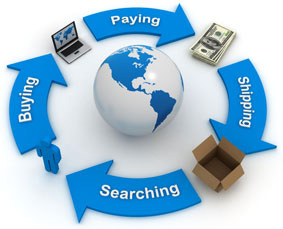
This year’s Davos World Economic Forum (WEF) summit was held under the theme — The Fourth Industrial Revolution. According to the WEF, the first industrial revolution used water and steam power to mechanise production. The second used electric power to create mass production. The third revolution used electronics and information technology to automate production. Now a fourth industrial revolution is the digital revolution that has been occurring since the middle of the last century and has been characterised by the integration of the physical, digital, and biological spheres.
NESBERT RUWO & JOTHAM MAKARUDZE
The current breakthroughs are evolving at unprecedented exponential rates rather than the linear pace experienced in the prior revolutions. Technological revolutions are disrupting conventional modus operandi in business and government. The technologies are coming in the form of artificial intelligence (AI), robotics (and drones), the Internet of Things (“IoT”), self-driving vehicles, 3-D printing, nanotechnology, biotechnology (stem cell science), renewable energy technologies, etc.
Technology has made it possible for new products and services that increased the efficiency and comfort in our personal lives. In most countries, especially in the developed world, life has been turned into a virtual reality. You can now order a cab using an app (e.g. through Uber), order groceries online and get them delivered without stepping your foot into a supermarket. You can now trade investment securities on a smart gadget in the comfort of your space, book and check in into a flight online, send money to a relative across the border while streaming your favourite programme on the internet. You no longer need to buy physical CDs or DVDs to listen to music or watch a movie — just download or stream. Most activities are now being done in the virtual space, thanks to explosive technological advancement.
What does this mean for Africa? Elsie Kanza, WEF’s Head of Africa, said that the recent entry of players such as Uber in the African market called on regional leaders to have a better understanding of how these technologies work. This calls for leaders in business and government to understand the implications of technological developments and drive initiatives in supporting new technologies and processes. Koos Bekker, chairperson of the Naspers Group (owners of Multichoice/DSTV), talking to SA’s Talk Radio warned that “the middle-level of the society is at the risk of losing their jobs to robots” and notes that a new industry is developing underpinned on the techies, “young guys with unkempt hair and T-shirts”. He said that they are investing in these young entrepreneurs.
WEF is concerned that the so-called fourth industrial revolution could create societal inequalities as labour markets are disrupted and segregated into “low-skill/low-pay” and “high-skill/high-pay”. It could be expected that the main beneficiaries of the new industralisation trend would be the innovators, shareholders, and investors. This would ordinarily entrench the widening of the income gap between the owners of capital and the workers. This revolution is creating a knowledge-based economy, which calls for ensuring that the generality of the populace be educated to a certain level and that our education system be geared towards the information technology-driven world.
While developments across the continent are encouraging, a lot still needs to be done, especially investment in the necessary infrastructure and systems where Africa is playing catch-up. Necessity has remained the father of innovation with some interesting innovations coming out of Africa in recent years. Among them the award-winning mobile money transfer system, M-Pesa developed by Kenya’s Safaricom — a mobile operator. Kenya now has its cattle farmers’ information support app (iCow). Uganda boasts its Uber-style dirty laundry app, Yoza, which lets users find people to do their laundry right from their location. In Ghana, you can have private security protection by a click of a button on your phone using the Hei-Julor!!! app. Locally, Econet has developed connected services such as health, car and home all underpinned on the company’s mobile telephony infrastructure.
The question that remains is whether Zimbabwe is ready for this industrial revolution? While it is important to adopt new technologies in line with international developments, our view is that Zimbabwe should create an environment that nurtures the development of its own technologies not just remain as a consumer of technologies developed in other parts of the world. It is important to create an environment in which the country can identity gaps and develop ground-breaking technologies. Consultant firm, McKinsey forecasts that by 2025, half of the sub-Saharan population will have internet access. This connectivity will create huge business and hence employment creation opportunities in the supply and consumption value chain.
- Chamisa under fire over US$120K donation
- Mavhunga puts DeMbare into Chibuku quarterfinals
- Pension funds bet on Cabora Bassa oilfields
- Councils defy govt fire tender directive
Keep Reading
The internet economy is something that can no longer be ignored. The slow adoption by local companies can be attributed to weak supportive conditions and poor infrastructure to enable rapid digital revolution. It calls for government and private sector support for technology infrastructure investments and the creation of industrialisation and technological evolution conducive environment. Bankers and funders should be gearing their funding and banking services to support the new breed of knowledge entrepreneurs. Our education system should be geared towards creating entrepreneurs, not just workers, and the system should support education in sciences and information technology. This is necessary to create a future generation that will be competitive and relevant in the technological world order.
Nesbert Ruwo (CFA) and Jotham Makarudze (CFA) are investment professionals based in South Africa. They can be contacted on [email protected]











